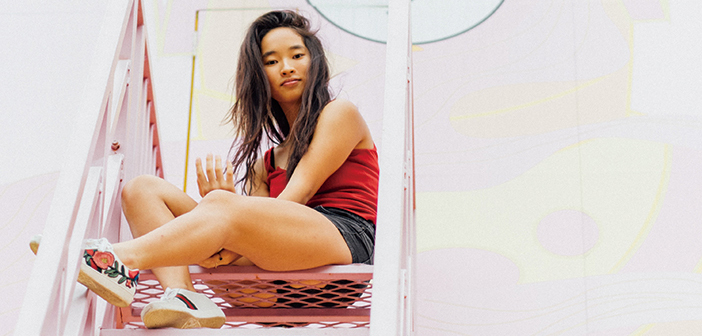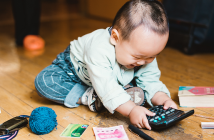At some point in our lives, we have probably all been criticized for the way we dress, or told that there is only one way that beauty should be expressed.
When I was in Grade 7, I felt very uncomfortable wearing crop tops and booty shorts in public because I felt like those weren’t clothes that people in Beijing would typically wear. I could feel people eyeing my body while walking down the street in these clothes, the kinds of clothes that people would call “too revealing”, or imply such messages through their judgmental glares.
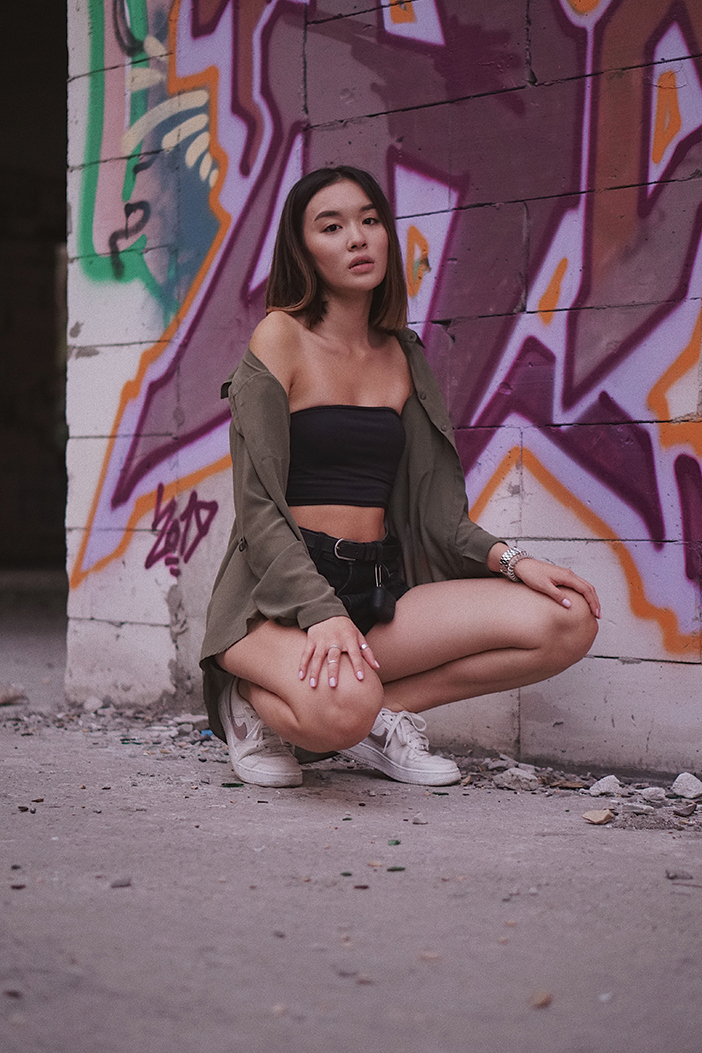 Having lived in Beijing for 16 years now, I understand exactly why some young girls and women feel uncomfortable and judged whenever they go out wearing clothes that don’t seem to fit in with what everyone else is wearing. In China, women’s fashion has always been more conservative than that of western countries. You often find young Chinese girls and women wearing oversized t-shirts, baggy pants, and non-body-con shorts. Meanwhile, tank tops, tube tops, mini skirts, or anything that shows too much skin or accentuates one’s figure too much are historically frowned upon in this country.
Having lived in Beijing for 16 years now, I understand exactly why some young girls and women feel uncomfortable and judged whenever they go out wearing clothes that don’t seem to fit in with what everyone else is wearing. In China, women’s fashion has always been more conservative than that of western countries. You often find young Chinese girls and women wearing oversized t-shirts, baggy pants, and non-body-con shorts. Meanwhile, tank tops, tube tops, mini skirts, or anything that shows too much skin or accentuates one’s figure too much are historically frowned upon in this country.
While I do acknowledge that modest and conservative dressing is deeply rooted in China’s culture and tradition, I believe that being able to express ourselves through what we wear, and to portray an image we wish for the world to see is a choice we should be able to make. And I’m not the only one, many other teenage girls in Beijing feel the exact same way.
Delphine Q., a Singapore-born girl who’s lived in Beijing for quite a long time has experienced this first hand. “When I’m in Singapore, I tend to feel very safe, so I’m comfortable with whatever I wear. Beijing is a huge city, but I don’t think everyone in Beijing knows how to view fashion because they tend to have a very traditional mindset on what fashion is. Sometimes I can feel that there are people on the street looking at me like I’m a freak because of how I dress, but I don’t really care since it’s my own style and I like it.”
Emily S., a 16-year-old teenage girl who used to live in Beijing, but now attends a boarding school in North Carolina, US expresses how she views fashion in Beijing. “In many places in Beijing, especially where I live [Haidian], where traditional Chinese cultural heritage is more well preserved, it’s even harder to walk around wearing skimpy clothes because people really do stare a lot. For example, if I wanted to wear spaghetti straps, it’s just not possible around my area.”
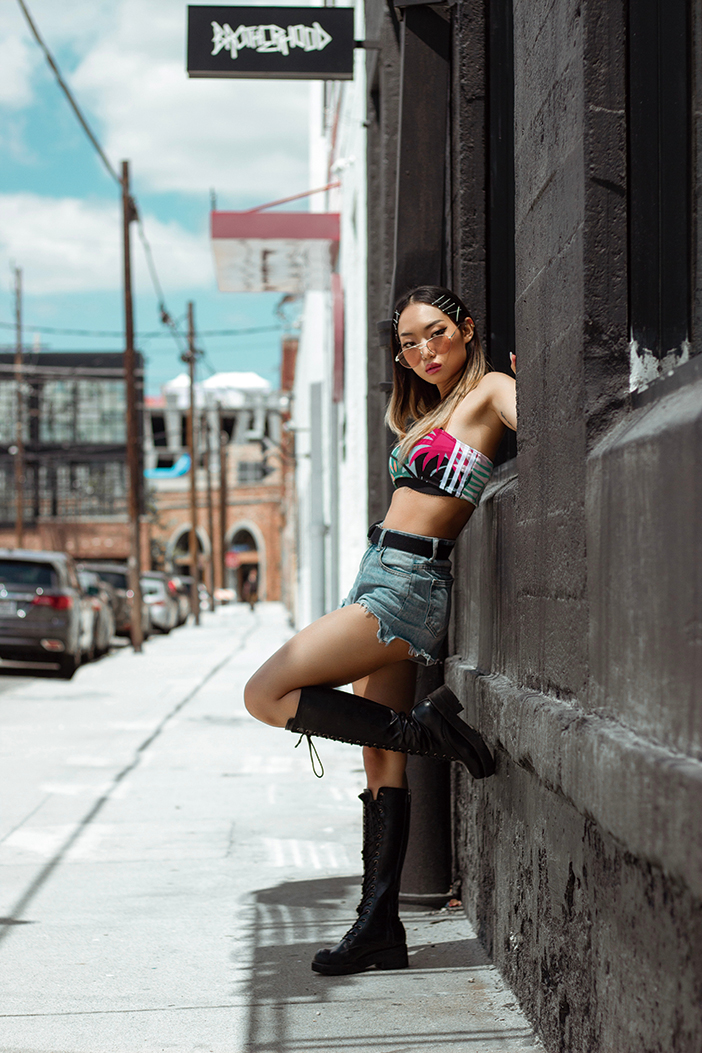 But not all are examined under the same judgmental microscope; there seems to be a rigid fashion stigma targeted mainly towards women of Asian heritage. The older generation in Beijing tends to think it is completely fine for westerners to wear skimpy and body-hugging clothes in public, while Asian women are often criticized when doing the same thing.
But not all are examined under the same judgmental microscope; there seems to be a rigid fashion stigma targeted mainly towards women of Asian heritage. The older generation in Beijing tends to think it is completely fine for westerners to wear skimpy and body-hugging clothes in public, while Asian women are often criticized when doing the same thing.
This is perhaps why Chichi S., who is Zambian, and Mayank S, who is half Swiss and half Indian, both believe that Beijing is an inclusive city for fashion. “I feel like people in Beijing are pretty expressive with what they wear,” explains Chichi, “and that encourages me to be expressive with what I wear and my style because I don’t feel alone, and I don’t feel like an outcast.”
When describing her fashion experience in Beijing, Mayank says, “I feel comfortable presenting myself through my fashion in Beijing. Large cities, in general, are great for wearing what you like, not only can you really express yourself, you can also find inspirations in the personal style of everyone you cross in the street.
But it’s not just about the amount of skin you show. Another common fashion stereotype that is deeply embedded within the Asian fashion industry is the disparagement of plus-size models. Many Asian media still portrays skinny as the only form of beauty, but the truth is, beauty has no limits.
“Some people simply are just plus size because that’s how they are built. Some can’t change that no matter how hard they try because that it just how they are,” explains Chichi, “however, the fashion industry completely excludes them by hiring skinny models and not everyone can obtain that kind of body.
As I become older, my insecurities towards my fashion aesthetic have gradually ceased, because I believe that fashion is a very subjective matter and that each individual feels different about it. Although people still stare at me when I walk around in Beijing wearing skimpy clothes, I’m confident enough to realize that I am only presenting myself, and that when I am happy with what I’m wearing, other people’s opinions don’t matter.
Fashion should be something one uses to express themselves, not feel oppressed by. And cultures and traditions shouldn’t take away our rights to express ourselves as the people we want to appear to be. Perpetuating historical values is important, but preserving and understanding history while having an open mindset that tolerates different fashion aesthetics is what we should all aspire for the people living in Beijing, and every other part of the world.
KEEP READING: How Young is Too Young for Plastic Surgery?
Photos: Unsplash
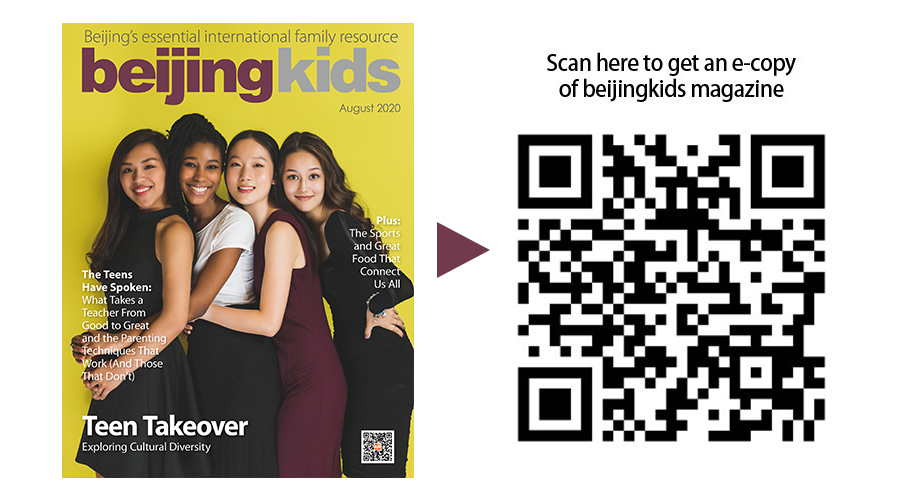 This article appeared in the beijingkids 2020 August issue
This article appeared in the beijingkids 2020 August issue

